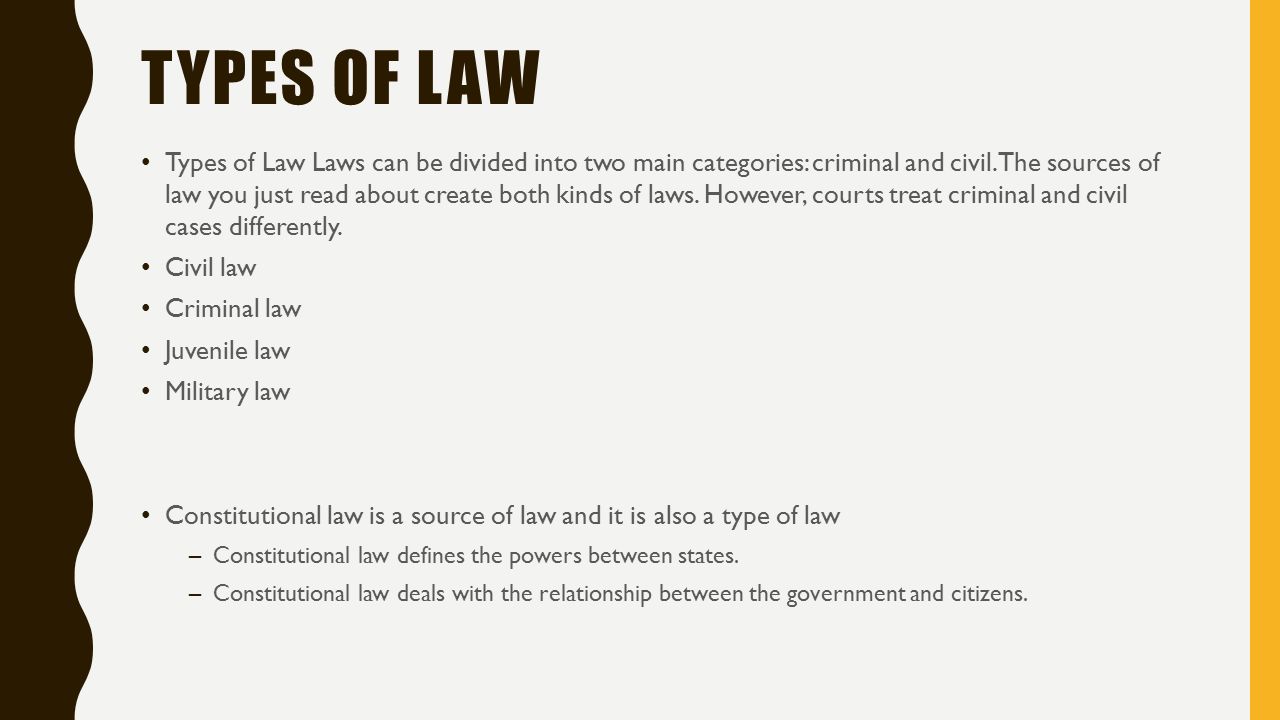What are the 3 most common types of law?
The law is a complex and constantly changing field. The American Bar Association (ABA) has defined the legal profession as follows: “A legal profession is a group of individuals who provide legal services to others. These services include advising and representing clients in the resolution of disputes, conducting research and writing, interpreting and applying the law, providing legal counsel and advocacy, and other related activities.”
The world is filled with laws and legal issues that you may need to know about, but don’t have time to read all the different types of laws. If you’re looking for a quick, simple, and easy way to learn the basics of different types of laws, then this post is for you.
The law is the body of rules, regulations, and principles that govern society. It can be found in any country, in any industry, and in any profession. In this post, we will talk about the 3 most common types of law.
What are the 3 most common types of law?
There are three primary types of law: Statutes, case law, and common law.
Statutes are set rules of conduct that government creates and applies to its citizens.
Case law is a judge’s interpretation of a specific rule of conduct.
Common law is the system of rules that govern society.
What are the 3 primary rules of law?
Every law has 3 primary rules:
1. Know your facts.
2. Do not break the law.
3. Obey the law.
In the United States, there are 3 main types of law. Each one is a little bit different.
Here is a quick overview of each type of law.
1) Civil Laws:
Civil laws determine how to interact with other people. They define how we should behave, what we should do, and how we should treat other people.
2) Criminal Laws:
Criminal laws dictate how people can treat each other. If a person breaks a criminal law, he or she will face punishment.
3) Commercial Laws:
Commercial laws govern the relationships between companies. For example, how a company is allowed to act toward its customers.
These laws can be found in many places, including the United States, Canada, the UK, Australia, and India. The US, for example, has the following types of laws:
Federal laws (includes criminal, civil, and commercial)
State laws (includes criminal, civil, and commercial)
City and county laws (includes civil, criminal, and commercial)
What type of law is most common?
This is a simple question. The answer is that criminal law is the most common law. Criminal laws are in place to protect the public. They are designed to punish criminals. These laws were made to protect everyone from getting into trouble.
You will need a good understanding of the law in order to survive in this world. To understand the law, you should learn what it takes to be a lawyer. In addition to that, you should learn about the different areas of law. There are four main areas of law: personal injury law, business law, real estate law, and criminal law. The first area is personal injury law. This is a legal system that protects people from people who are hurt due to another person’s actions. Personal injury law includes personal injury cases, medical malpractice cases, product liability cases, and negligence cases.
What are the 4 categories of the laws?
All laws are categorized in four different ways. They are the civil, the criminal, the tax, and the administrative. Every law has a purpose, and there is a specific person who has been assigned to follow it. The purpose of a law is to make sure that people obey it. If people obey the law, they will feel safe and secure, and they will be able to enjoy themselves and live peaceful life.
In physics, there are four laws that govern everything. These laws are Newton’s Laws of Motion, Einstein’s Relativity Theory, the Quantum Theory, and Bose-Einstein Condensate. They are the most fundamental laws that describe our universe.
What is the basic common law?
The basic common law is that you cannot be charged with a crime if you didn’t commit it. For example, if you are accused of shooting someone, you would have to prove that you did not shoot anyone. If you can’t, you will be convicted. On the other hand, if you have no witnesses, then the prosecution can’t use the law against you.
The basic common law is the rule or principle that everyone in the world follows. The basic common law can be described as a set of rules that are made by all people. These laws are known as the “Universal Common Law.” All people agree on the basic common law. Some people argue that there are other laws in addition to the basic common law. However, there are no other laws in addition to the basic common law. No one can decide that there are other laws that are different from the basic common law. Everyone agrees that the basic common law exists.
Also Read. Most Common Health Issues in men’s and women
What are the 3 parts of the rule of law?
Law is a set of rules. You need to know the law. If you break the law, you can be put in jail. You must follow the rules if you want to be safe. There are three main parts of the law. They are:
- 1st – The Constitution
- 2nd – The law books
- 3rd – The police
The first part of the rule of law is the law. You must follow the laws of the country you live in. If you don’t, you may find yourself in trouble with the police. The second part of the law is in order. You must obey the orders of your superiors. If you do not obey them, you may be punished. The last part of the law is justice. If you do something wrong, you should be punished. This includes stealing. If you don’t pay for something, you may be sent to jail.
What is the 3 function of law?
We all know the 2 functions of law. The 2 functions of law include criminal and civil law. Criminal law deals with the crimes. It regulates the punishment for those who commit crimes. Civil law is what governs the rights of individuals. The 3rd function of law is administrative law. Administrative law has to do with the administration of justice, government, and business.
Conclusion!
In conclusion, there are three types of law: criminal law, civil law, and administrative law. The first type of law applies when a person is guilty of breaking the law. The second type of law applies when a person needs to be defended against a lawsuit. The third type of law applies when someone wants to create new rules, regulations, or policies.

 Business2 years ago
Business2 years ago
 Tips & Tricks2 years ago
Tips & Tricks2 years ago
 Business2 years ago
Business2 years ago
 Law2 years ago
Law2 years ago
 Business2 years ago
Business2 years ago
 Technology2 years ago
Technology2 years ago
 Game1 year ago
Game1 year ago
 Politics2 years ago
Politics2 years ago







